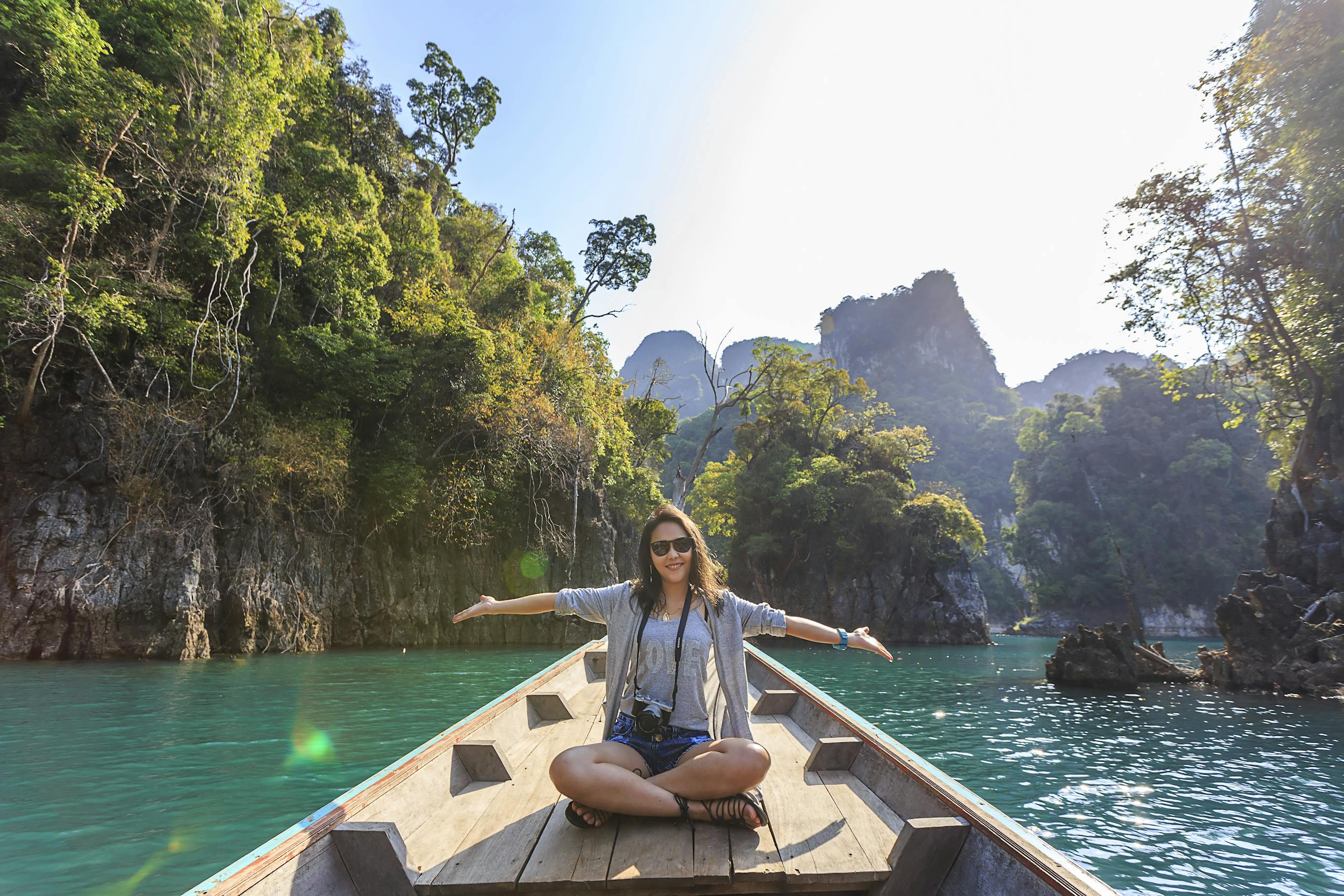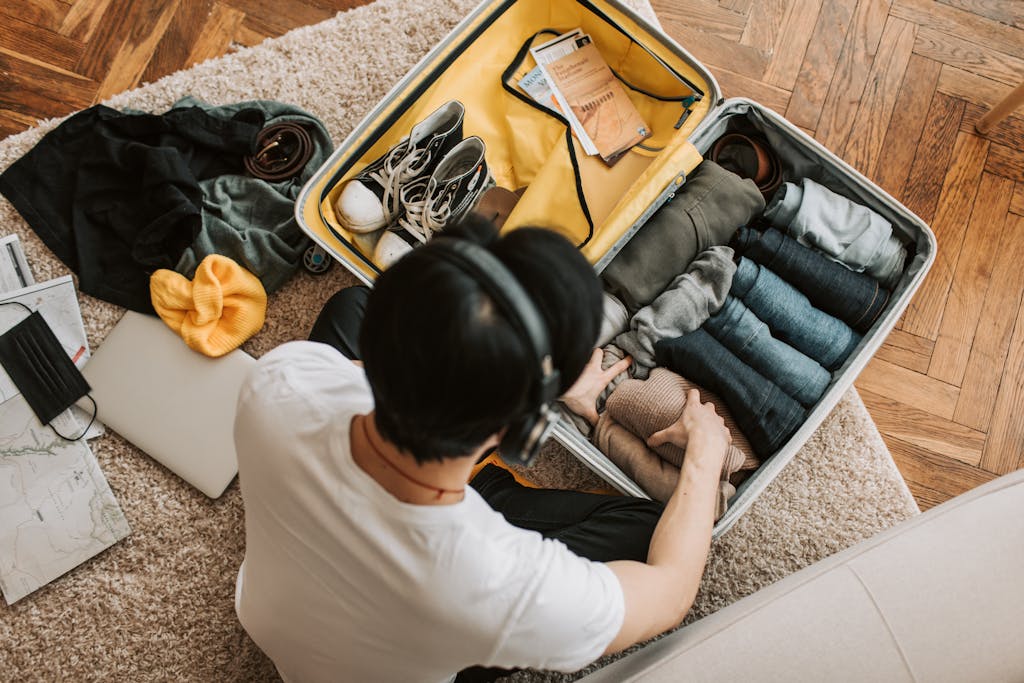Mastering Language Barriers While Traveling Alone
Traveling alone is an exhilarating adventure, but what happens when you can’t understand the local language?
You’re sitting in a quaint café in Paris, trying to order a simple cup of coffee. The server is rattling off in rapid French, and you’re staring blankly, wishing you’d paid more attention in high school language class.
Sound familiar?
Getting past language barriers is critical for solo travelers.
It unlocks a fuller, richer experience, making interactions smoother and more enjoyable.
You’ll save yourself from awkward situations and build deeper connections with locals.
Plus, you’ll gain a sense of independence and confidence that’ll serve you well beyond this trip.
In this post, we’ll explore practical tips and tools for communicating effectively, even if you’re miles away from being bilingual.
From learning a few basic phrases to utilizing translation apps, we’ve got you covered.
Ready to turn those language barriers into stepping stones for a more memorable journey? Let’s dive in!
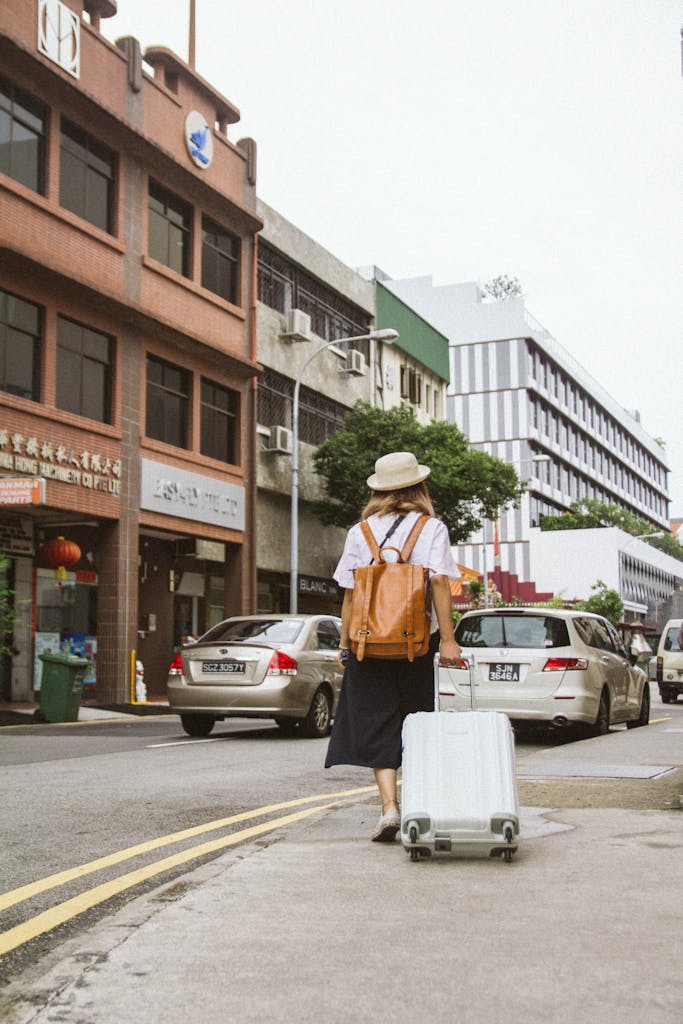
Preparation Before Traveling
Traveling alone to a place where you don’t speak the language can be tough, But with some preparation, you can turn this challenge into an exciting part of your adventure.
Here are some steps you can take before your trip to mitigate language barriers.
Learning Basic Phrases
Knowing a few key phrases in the local language can be a lifesaver. It’s like having a key that opens doors to new experiences. Here’s what you should focus on learning:
- Greetings: Simple words like “hello,” “goodbye,” “please,” and “thank you” can go a long way.
- Directions: Learn to ask for help with directions using phrases such as “Where is…?” and “How do I get to…?”
- Numbers: Being able to count or understand basic numbers can be helpful, especially when shopping or using public transport.
- Emergency Phrases: Knowing how to say “Help!” or “I need a doctor” can be crucial.
By mastering these phrases, you’ll not only show respect for the local culture but also ease your way into daily interactions.
Using Language Learning Apps
Language learning apps are fantastic tools that help you become familiar with the local language. Here are some popular ones you might find useful:
- Duolingo: Offers a fun and engaging way to learn through games.
- Babbel: Focuses on real-life conversations and practical phrases.
- Rosetta Stone: Known for its immersive method and comprehensive lessons.
- Google Translate: While not solely a learning app, it’s great for quick translations and can even translate text from photos.
These apps are like having a personal tutor in your pocket. They make learning a new language less intimidating and more accessible.
Cultural Research
Understanding cultural nuances is just as crucial as learning the language. Sometimes, gestures or body language can speak louder than words.
Here’s what to look out for:
Greetings and Manners: Learn how locals greet each other and what manners are considered polite.
Body Language: Some gestures that are harmless in your country might be offensive elsewhere.
Dress Code: Respect local customs regarding clothing to avoid misunderstandings.
Dining Etiquette: Research dining customs to ensure you don’t offend anyone during meals.
By doing this research, you’ll be better prepared to navigate the social landscape of your destination and avoid unintentional faux pas.

Taking these steps can transform your travel experience from stressful to enriching.
With some preparation, the world becomes your oyster, ready for you to explore.
During the Trip: Strategies for Communication
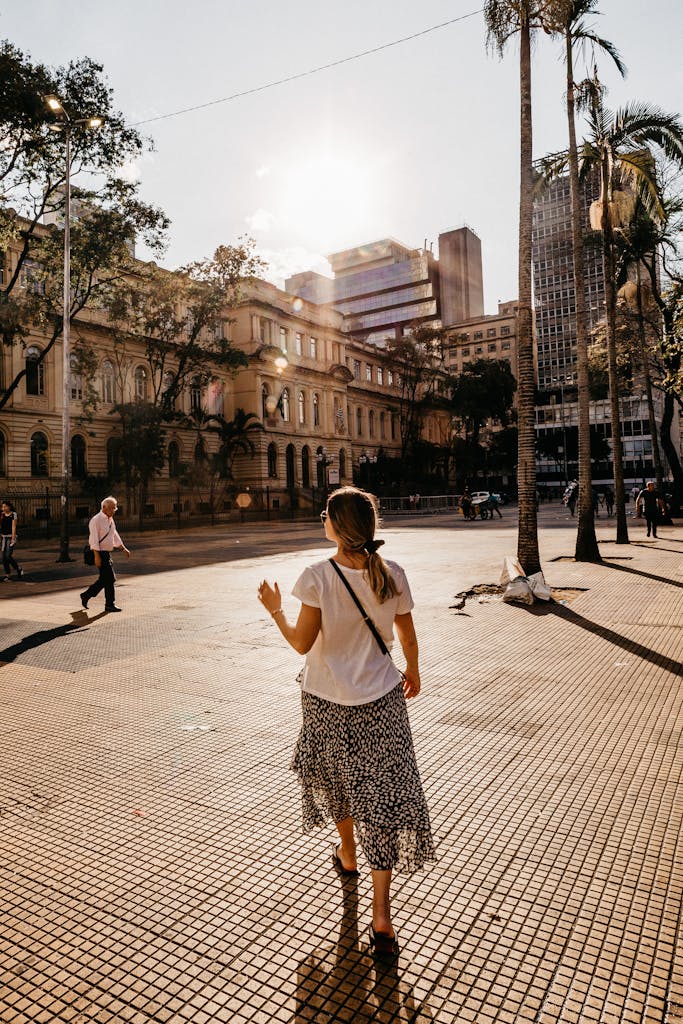
Using Translation Apps
For the modern traveler, translation apps can be a lifesaver. These apps can:
- Translate text from signs or menus using your camera.
- Provide real-time voice translations during conversations.
- Offer offline support for areas with poor internet connection.
With apps like Google Translate or iTranslate, you can break down most language barriers with just a few taps on your phone.
Gestures and Body Language
When words fail, your body can do the talking. I once ended up in a quaint little cafe in Paris, and my French was as good as non-existent.
But with a few gestures and a smile, I ordered exactly what I wanted. Here’s how to make gestures work for you:
- Smile and be friendly: It’s universal and disarming.
- Use simple hand gestures: Pointing, nodding, and shaking your head can communicate basics.
- Be mindful of cultural differences: Ensure your gestures are appropriate and understood.
By using non-verbal cues, you can effectively convey your intentions and needs.
Finding English-Speaking Locals
Want to find someone who speaks English? You’re not alone. There are always locals who speak multiple languages, especially in tourist hotspots. Consider these tips:
- Stay in well-known areas: Popular destinations often have people who know English.
- Head to international chains: Staff at places like Starbucks or McDonald’s are more likely to speak English.
- Ask younger people: They are more likely to have learned English in school.
Finding someone who speaks English can make your trip smoother and more enjoyable.
Joining Group Activities
Group activities can be a goldmine for making connections and finding clarity.
When I joined a cooking class in Italy, I met fellow travelers and locals who spoke English.
It not only helped with communication but also enriched my travel experience. Here’s why group activities are beneficial:
- Enhanced communication: Activities are often led by bilingual guides.
- Shared experiences: You can bond over the shared activity, making interaction easier.
- Increased confidence: Being part of a group can boost your confidence in an unfamiliar setting.
Engaging in group tours or classes can provide both companionship and clearer communication.
These strategies can help you navigate and enjoy your journey, even when language barriers seem daunting. Stay prepared, keep an open mind, and you’ll find that the world is smaller and more connected than you think.
Overcoming Challenges and Building Confidence
Embracing Mistakes

One of the biggest fears when traveling alone is making mistakes while communicating.
Guess what? It’s totally normal!
Everyone stumbles over words or mispronounces names now and then. The important thing is how you handle these slip-ups.
Think of mistakes as stepping stones rather than hurdles. Each misstep is a chance to learn and improve. Imagine you’re trying to order a meal in a foreign café.
You might accidentally order something completely different from what you intended. It might be frustrating, but it’s also a fun surprise!
And more often than not, locals appreciate your efforts to speak their language.
Here are some tips for embracing mistakes:
- Laugh it off: Humor can diffuse awkward situations.
- Ask for help: Locals are usually happy to assist and might teach you new phrases.
- Keep practicing: The more you try, the better you’ll get.
By viewing mistakes as opportunities, you not only enhance your language skills but also boost your confidence.
Staying Calm and Patient
Let’s face it, navigating a new language can be stressful. There will be times when conversations don’t go as planned. Staying calm and patient is crucial during these moments.
Maintaining composure helps you think more clearly.
If you’re overly nervous, you might forget simple words or phrases you already know. Think of patience as your secret weapon, much like a superhero uses their powers.
Here are some strategies to keep your cool:
- Take a deep breath: This can help slow your heart rate and clear your mind.
- Use simple words: Don’t overcomplicate your sentences. Stick to basic terms.
- Body language: Gestures and facial expressions can bridge gaps when words fail.
- Write it down: If verbal communication isn’t working, writing might help.
Remember, every traveler faces these challenges. By staying calm and patient, you can turn a potentially frustrating encounter into a rewarding experience.
Embrace the journey – road bumps and all. After all, it’s these challenges that make your travel stories worth telling.
Resources for Further Learning
Here are some tools and platforms to help you enhance your language skills and connect with others who share your passion for travel and learning.
Online Language Communities
Finding the right online language community can make a world of difference. These platforms offer a space where you can practice languages, ask questions, and even connect with native speakers.
- Duolingo: This popular app allows for casual, daily practice in several languages. It’s interactive and great for beginners.
- HelloTalk: A language exchange app where users can chat with native speakers. The app offers text, voice, and even video chat options.
- Reddit: Subreddits like r/languagelearning and r/solotravel can provide valuable tips, resources, and community support.
Imagine having a pen pal, but in the 21st century! These platforms can be your gateway to new friendships and better language skills.
Travel Blogs and Vlogs
Sometimes, reading about or watching others’ experiences can be just as educational as formal learning.
Many bloggers and vloggers share their language-learning journeys and cultural experiences, which can be both inspiring and informative.
- Nomadic Matt: A well-known travel blog that provides tips on learning languages and understanding different cultures.
- The Blonde Abroad: This blog offers insights into solo travel with a focus on overcoming language barriers.
- YouTube Channels: Channels like “Lost LeBlanc” and “Drew Binsky” provide fun and engaging content related to travel and language learning.
Watching vlogs is like having a friend tell you about their adventures. You can pick up useful tips and feel more confident about your own journey.
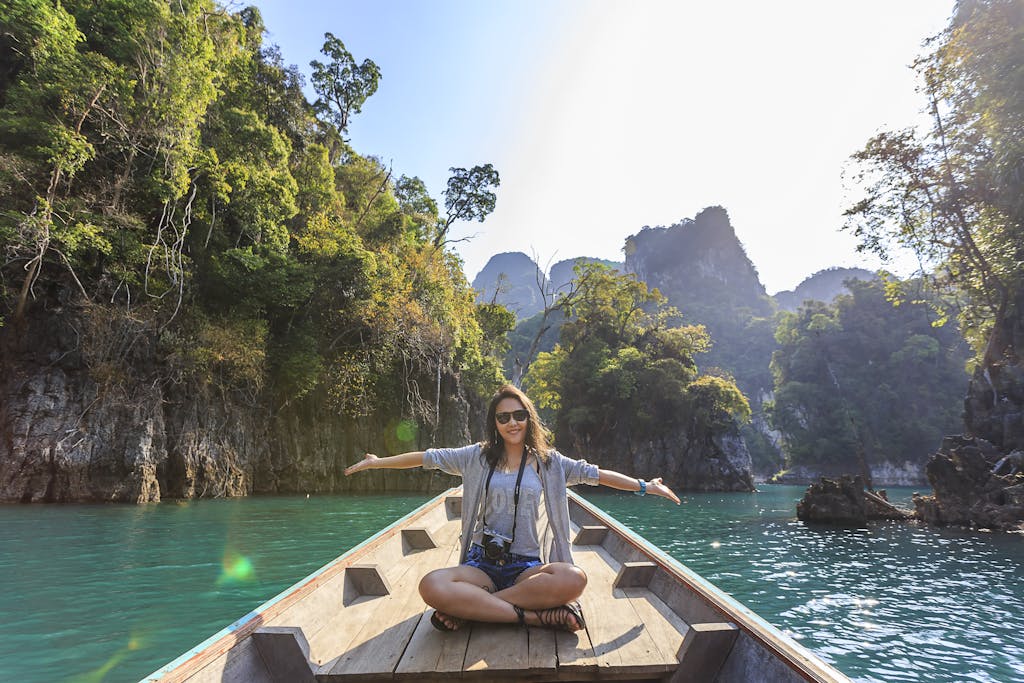
These resources are fantastic starting points for any solo traveler looking to break down language barriers.
Conclusion
My first solo trip was me, a menu, and zero idea what anything meant. It was awkward, sure, but it also pushed me to engage with locals in ways I wouldn’t have otherwise.
Language gaps don’t have to be roadblocks. Use translation apps, learn key phrases, and embrace non-verbal cues.
These moments can lead to unexpected friendships and deeper cultural insights.
So, next time you’re on your own in a foreign land, see it as a chance to grow. Dive in, make mistakes, and laugh them off.
You’ll have stories to tell and lessons you’ll never forget.
Safe travels!

